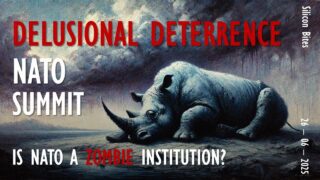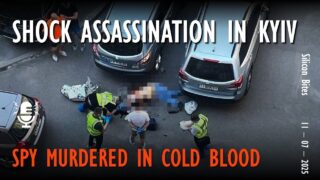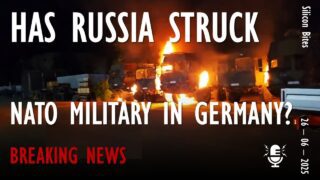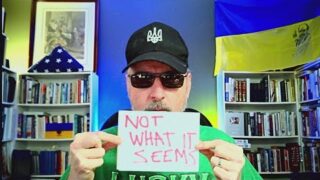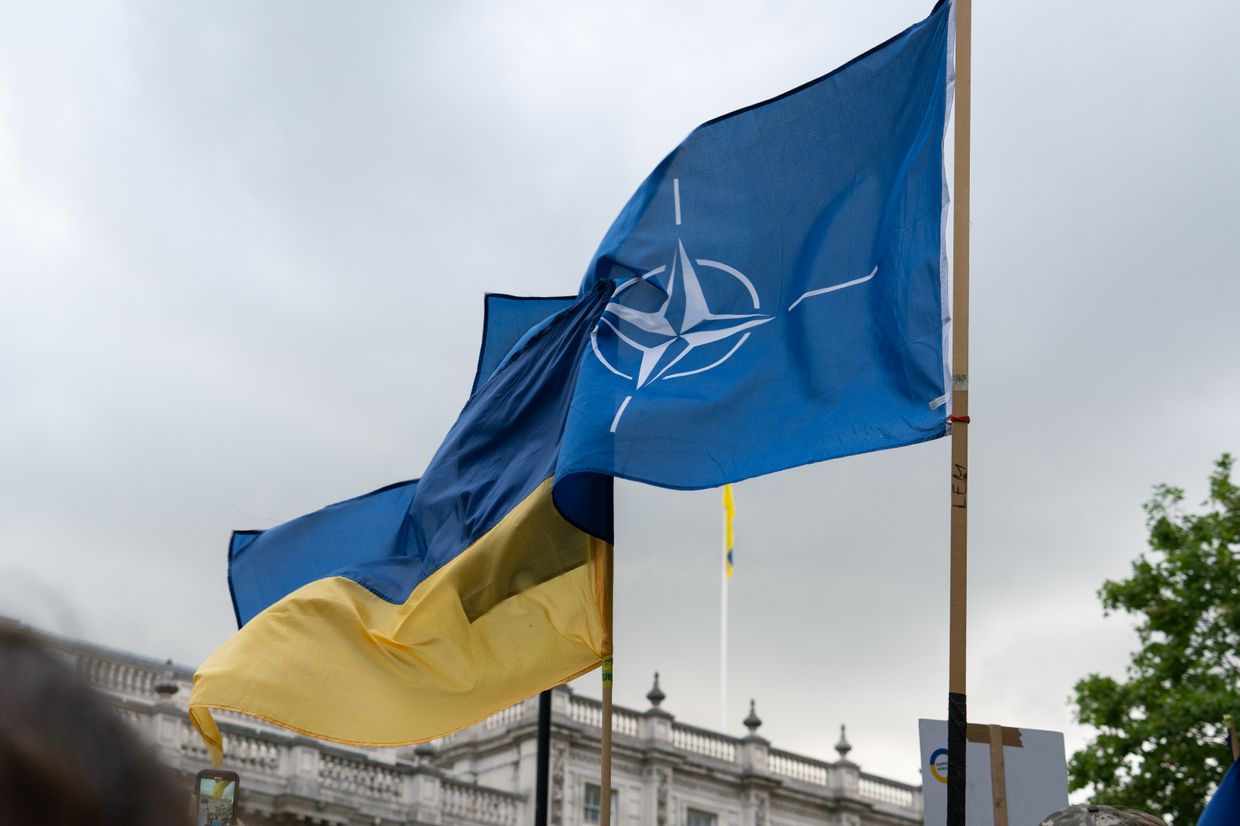
Ukraine war latest: Kyiv won't accept security guarantees substituting NATO membership
Key developments on Dec. 3:
- Ukraine won't accept security guarantees substituting NATO membership
- Ukraine prevents Russia from establishing bridgehead west of Oskil River, military says
- France, UK discuss deploying troops to Ukraine for ceasefire monitoring, sources tell RFE/RL
- Ukraine asking NATO for 20 air defense systems to prevent blackouts
- Zelensky disputes media reports of 80,000 Ukrainian military casualties
Ukraine will refuse any kind of security guarantees substituting NATO membership, according to a Foreign Ministry statement on Dec. 3.
"Having the bitter experience of the Budapest Memorandum behind us, we will not settle for any alternatives, surrogates, or substitutes for Ukraine's full membership in NATO," the statement said just two days before the 30th anniversary of the memorandum's signing.
NATO foreign ministers are meeting in Brussels between Dec. 3 and 4, with Ukraine also participating. Kyiv urged the allies to issue a membership invitation during the meeting, but Reuters reported that there is a lack of consensus on the matter.
Ukraine gave up its Soviet-era nuclear weapon arsenal in the Budapest Memorandum in 1994 in exchange for the recognition of its borders and security guarantees by the U.S. and Russia, among others.
The ministry's statement called upon "the U.S. and Great Britain, which signed the Budapest Memorandum,… France and China, which joined it," and "all the states participating in the Treaty on the Non-Proliferation of Nuclear Weapons" to support Ukraine's invitation to NATO to counteract Russian blackmail attempts.
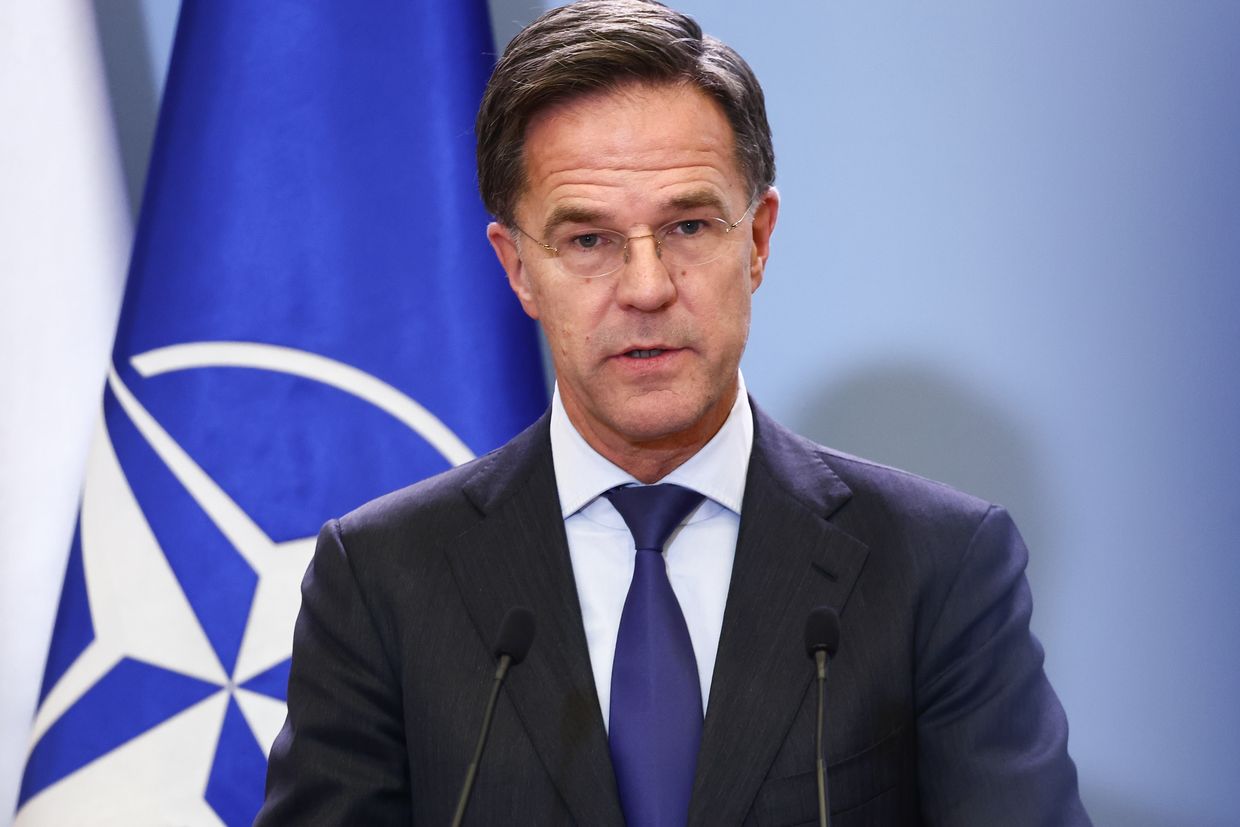

Ukraine prevents Russia from establishing bridgehead west of Oskil River, military says
Ukrainian troops managed to fend off Russian forces attempting to establish a foothold on the western side of the Oskil River north of the Kharkiv Oblast town of Kupiansk, the General Staff of Ukraine's Armed Forces reported on Dec. 3.
The military published footage of the engagement that reportedly took place near the village of Novomlynsk, lying some 20 kilometers (12 miles) north of Kupiansk.
Russian troops ramped up their efforts near Kupiansk in early September and approached its industrial outskirts in the northeast. Recently, Ukrainian forces repelled several Russian attempts at entering the town.
Thanks to numerical advantage, Russian forces managed to cross the Oskil River, seeking to establish a bridgehead on the other side, the General Staff said.
Ukrainian forces have heavily fortified the west side of the Oskil River to prevent Russian forces from approaching Kupiansk from the north. Reports about Moscow's troops successfully forcing the river near Novomlynsk surfaced in late November.
"At the same time (as Russia was establishing the bridgehead), Ukrainian defenders, supported by artillery and drone units, forced out Russian forces from the bridgehead," the General Staff said without specifying the date of the engagement.
"Namely, soldiers of the 8th Separate Assault Battalion of the 10th Separate Mountain Assault Brigade 'Edelweiss' cleared the area near Novomlynsk of Russian forces."
The military said that the western bank of the Oskil River is under Ukrainian control, showing footage of Ukrainian soldiers raising a state flag in Novomlynsk.
France, UK discuss deploying troops to Ukraine for ceasefire monitoring, sources tell RFE/RL
Paris and London are exploring options to support Ukraine in potential peace talks with Russia, including deploying French and U.K. troops to monitor a ceasefire along the contact line, a senior NATO official told Radio Free Europe/Radio Liberty (RFE/RL).
The official, who requested anonymity as they were not authorized to speak publicly, noted that these discussions are happening in individual capitals, not within the formal NATO structure.
The aim is to prepare for various scenarios, ensuring European countries are ready to assist Kyiv if the new U.S. administration requests greater European involvement. According to the official, the proposals also seek to secure European allies' participation in peace talks that U.S. President-elect Donald Trump could mediate.
French and British discussions on leading a military coalition in Ukraine have gained momentum, with Le Monde reporting renewed talks about deploying troops. French Foreign Minister Jean-Noel Barrot told BBC News that while France is not currently planning to send troops into combat, the country "does not discard any option."
"(France) will support Ukraine as intensely and as long as necessary. Why? Because it is our security that is at stake. Each time the Russian army progresses by one square kilometer, the threat gets one square kilometer closer to Europe," Barrot said.
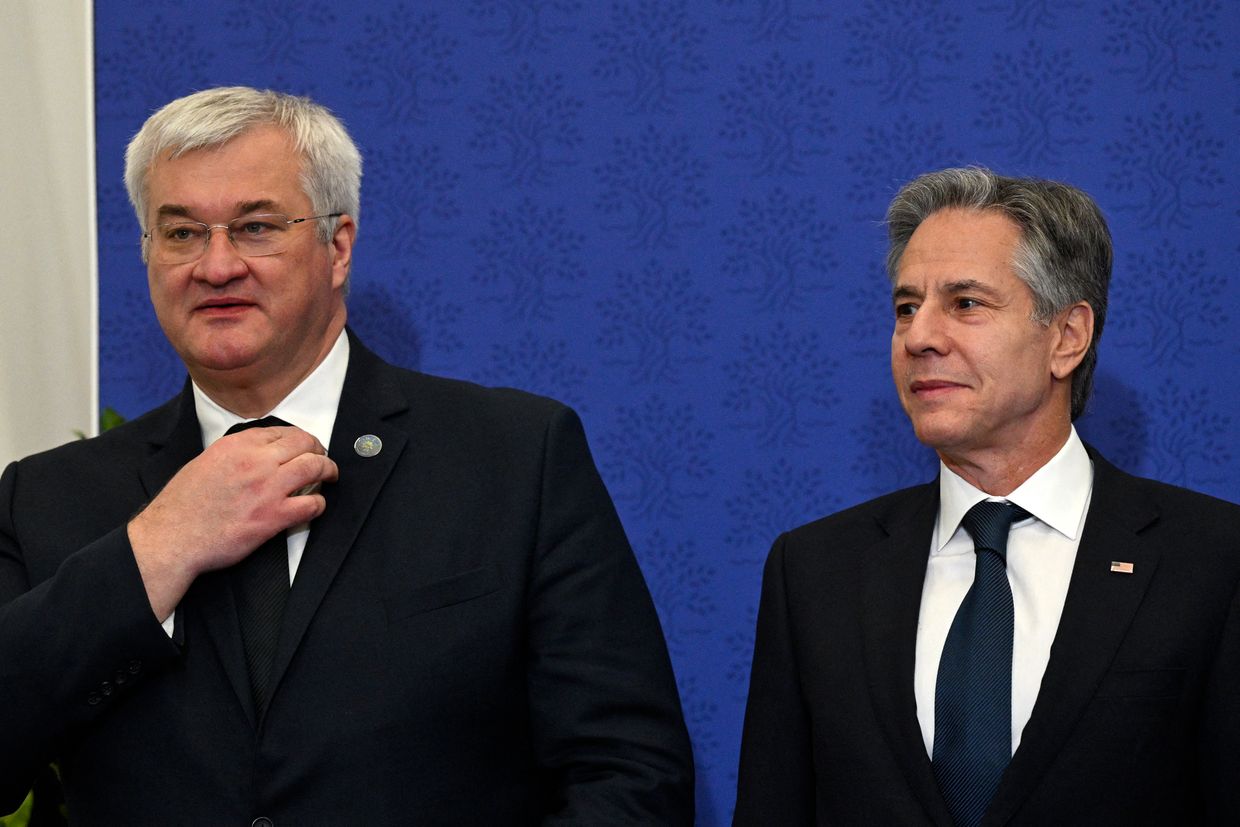

Ukraine asks NATO for 20 air defense systems to prevent blackouts
Ukraine is appealing to its NATO partners to provide at least 20 air defense systems to help repel Russian aerial attacks, Foreign Minister Andrii Sybiha said ahead of an allied meeting in Brussels on Dec. 3.
The provision of HAWK, NASAMS, and IRIS-T batteries will help avert blackouts, Sybiha said as Ukraine braces for fresh attacks in the third winter of the full-scale war.
Ukraine's diplomacy chief is in Brussels to attend the NATO foreign ministers' meeting and participate in the Ukraine-NATO Council session. Kyiv seeks to secure not only additional military assistance but also the much-coveted invitation to join the alliance.
Speaking to journalists ahead of the meeting, Sybiha brought the Budapest Memorandum, a document signed by Ukraine, Russia, and Western powers in 1994. In accordance with the agreement, Kyiv gave up its Soviet-era nuclear weapons in exchange for security guarantees.
"This document failed to secure Ukrainian security and Trans-Atlantic security. So we must avoid repeating such mistakes," Sybiha said.
"That's why, of course, we will discuss with my partners the concept of 'peace through strength,' and we have a clear understanding of which steps we need from our friends to do our homework."
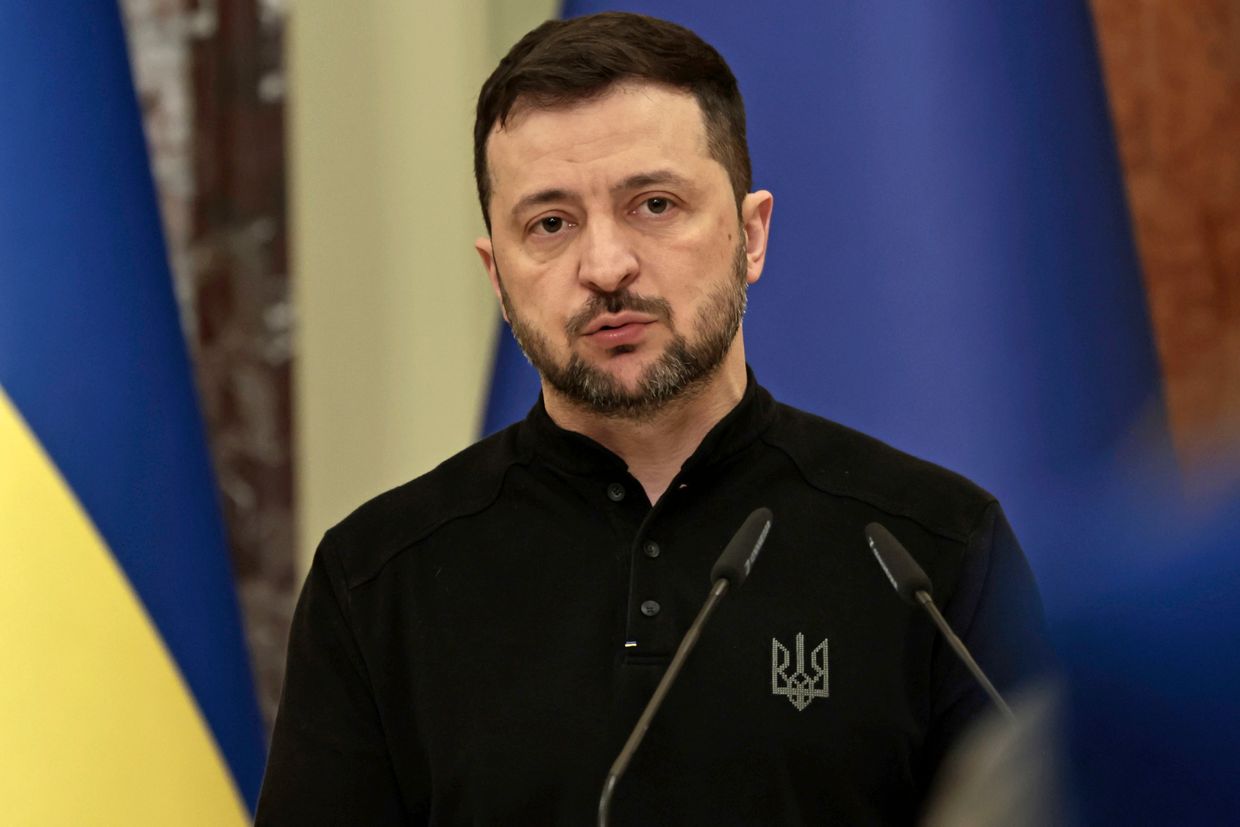

Zelensky disputes media reports of 80,000 Ukrainian military casualties
During an interview with Kyodo News published on Dec. 1, President Volodymyr Zelensky disputed reports in Western media that as many as 80,000 Ukrainian soldiers have been killed during the full-scale war with Russia.
"Recently, some in, I believe, the American press reported that 80,000 Ukrainians had been killed. I want to tell you that, no, (the number of those killed is) less, much less," Zelensky said, while refusing to provide a detailed number of casualties.
"However, we have to be honest, we do not know how many Ukrainian have been killed on occupied territories of Ukraine," Zelensky added.
Zelensky's comments likely refer to the Wall Street Journal's claims published on Sept. 17 that 80,000 Ukrainian soldiers had died during the war, with a further 400,000 wounded.




